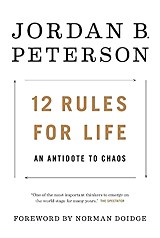Notes from the Baron:
The following review by Thomas Bertonneau discusses Wyst, one of the finest novels written by the late Jack Vance.
Long-time readers know that my nom de plume is taken from Jack Vance’s work — not from a character in his fiction, but from an imaginary writer, scholar, and commentator named Unspiek, Baron Bodissey, who provided the (sometimes lengthy) disquisitions on history, sociology, and political economy that appeared as footnotes in the novels.
The cover of Wyst shown below is not from the currently available version of the book, but from the original published by DAW Books, the first printing in 1978. I scanned it from my own Vance collection, and then de-yellowed it.
A Dystopian Masterpiece: Jack Vance’s Wyst: Alastor 1716
by Thomas F. Bertonneau
Towards the end of a long life, the American genre writer — and merchant seaman, jazz-man, and master of many trades — Jack Vance (1916-2013) produced an amusing autobiography entitled This is Me, Jack Vance! (2009); the book also carried a parenthetical and apologetic subtitle, Or, More Properly, This is I. In the subtitle Vance takes a jocund swipe at grammatical pedantry, and therefore at pedantry and Puritanism generally speaking, but he also affirms his passion for order, of which grammar is the linguistic species, without which (order, that is) freedom and justice, both of which he held as dear as anything, would be impossible.
There are a number of scholarly anthologies devoted to Vance’s authorship and at least one book-length single-author study of his fiction, Jack Rawlins’ Dissonant Worlds of Jack Vance (1986). It is a pity, however, that no intellectual biography of Vance exists. This is Me gives the essential details of its writer’s curriculum vitae, but it is largely bereft of information concerning Vance’s artistic-philosophical formation. So is Rawlins’ study, although it remains otherwise useful. If only, like Henry Miller, Vance had written his version of The Books in my Life! Concerning Vance’s artistic-philosophical formation, however, one might plausibly infer and arguably surmise a few probabilities. A writer is liable to be a reader, a prolific writer a prolific reader. A merchant seaman, as Vance remarks in his autobiography, finds himself with a good deal of time on his hands. Vance, who had briefly studied English at the University of California Berkeley, spent long stretches at sea during the Second World War, with a good deal of time on his hands. Two plausible guesses in respect of books that would have impressed themselves profoundly on Vance as he passed his time in their company are The Count of Monte Cristo by Alexandre Dumas père and The Decline of the West by Oswald Spengler.
The Count of Monte Cristo would have supplied Vance with a plotline, that of righteous and carefully plotted vengeance against arrogant and powerful offenders, which he used in his own brilliant way many times. Two books of Vance’s Alastor trilogy, Trullion (1973) and Marune (1975), are vengeance stories, as are all five volumes of The Demon Princes (1964 — 1981).
As it did for F. Scott Fitzgerald, Henry Miller, and the science fiction writer James Blish, among innumerable others, The Decline of the West would have deepened Vance’s sense of meaning and large-scale patterning in history; and it would have stimulated his interest in the comparison of cultures. In Spengler’s theory of the Great Cultures, as he called them, each Great Culture has a distinct physiognomy (Spengler’s term) that imprints and flavors its institutional manifestations and pervades the mental outlook of its every individual. A major element of Vance’s fiction is to establish through detailed description the distinct physiognomies — or as he calls it in a coinage of his own, the esmeric — of his fictional worlds and their societies. The Decline would also have honed Vance’s sensitivity to the crisis of European civilization, just as it had for Fitzgerald and Miller. Once again, the breakdown of social structures and the descent of civilization into renewed barbarism interest Vance almost obsessively. Vance’s authorship contains many other signs of Spengler’s background presence, not least in its tendency to insert extended philosophical discussions, sometimes as footnotes, into the unfolding story. In Vance’s later work, commencing with The Demon Princes, references occur to a certain “Baron Bodissey,” who seems to have been the Spengler of the settled cosmos, or the “Gaean Reach,” in the long-colonized solar systems of which, and among immensely old societies, Vance’s stories tend to occur. Spengler saw his Great Cultures as living entities. Vance’s Ecce and Old Earth (1991) quotes Bodissey’s study of “The Morphology of Settled Places,” in which he argues that “towns behave in many respects like living organisms,” a decidedly Spenglerian proposition.
Wyst: Alastor 1716 (1978), the third installment of Vance’s Alastor trilogy, falls somewhat outside the vengeance pattern of its two precursor installments although its denouement entails an act of supremely satisfying justice. Part of Wyst’s interest lies in the fact that it instantiates Vance’s knack for dystopian satire, the object of the satire being in this case the phenomenon of socialism, with its cult of egalitarianism. Before getting into the details, however, of Vance’s Spenglerian critique of the welfare state, a bit of context urges itself. The Alastor trilogy takes its overall title from its cosmic setting — Vance’s “Alastor Cluster.” As Wyst’s prefatory chapter explains, “Alastor Cluster, a node of thirty thousand live stars, uncounted dead hulks and vast quantities of interstellar detritus, clung to the inner rim of the galaxy with the Unfortunate Waste before, the Nonestic Gulf beyond and the Gaean Reach a sparkling haze to the side.” Of the thirty thousand solar systems that constitute the Cluster, three thousand are inhabited. The word alastor, not at all incidentally, stems from an ancient Greek name for an avenging spirit. The protagonists of Trullion and Marune indeed act as agents of retributive desert, but in matters of private offense. In Wyst Vance invokes justice rather than vengeance. In the early chapters of the novel, Vance’s protagonist and point-of-view character Jantiff Ravensroke functions as a perceptive visitor to and observer of the planetary “Egalist” society of Wyst. Readers gain their sense of Wyst’s cultural physiognomy through Ravensroke’s experiences, as he attempts to assimilate himself in a new and in many ways shocking environment. In the later chapters of the novel, while becoming increasingly involved with his new acquaintances, Ravensroke functions as a responsible citizen of the Cluster who feels the moral compulsion, at rising risk to his life, to report to the highest authority about wicked machinations unfolding on Wyst concerning which he has apprised himself. Ravensroke’s visit to Wyst, which he had undertaken for artistic reasons, becomes an ordeal and, pitting himself against a murderous conspiracy, he discovers his capacity for heroic action.
The highest authority in Alastor Cluster resides in the office of the Connatic. In the Connatic, Vance has taken a somewhat preposterous stock figure from pulp-era science fiction — the sovereign of a stellar empire, as in Edmund Hamilton’s Star Kings or Isaac Asimov’s Foundation trilogy — and reinvented it in his own masterful way. The Connatic, who rules the Cluster from a towering architectural complex at archipelagic Lusz on the planet Numenes, incorporates traits from Shakespeare’s Henry IV and from the Stoic emperor Marcus Aurelius. Like Henry IV, the Connatic sometimes goes in disguise among his people in order to discover their disposition. Like Marcus Aurelius, the Connatic is a philosopher who is nevertheless prepared to act, having at his command an immense and super-competent diplomatic corps and the “Whelm,” a potent military force. In the opening chapter of Wyst, receiving four representatives of the Egalist society in his tower, and being criticized by one of them for his “position of unnatural privilege,” the Connatic replies: “I am I, who by reason of events beyond my control am Connatic. If I were someone else, I would not be Connatic; this is indisputable.” In that hypothetical case, however, “He, like I, would ponder the singularity of his condition.” The irascible ambassadors know not what to make of it. They take up again their crass demands on behalf of their world. The Connatic, whose name implies the cognitive faculty, knows these petitioners for precisely who they are. Vance bestows on the Connatic an encyclopedic knowledge of the planetary societies that he oversees and a near-instantaneous and deeply penetrating intuition in respect of character-nuance and political implication. He, too, is practiced in the Spenglerian art of physiognomic tact.
That Ravensroke should come to the attention of the Connatic partakes of the inevitable. Vance has endowed on Ravensroke artistic percipience, curiosity, and openness to experience so that, in a novice’s way, he resembles the Connatic in his talents. Ravensroke originates on the many-islanded largely aquatic planet Zeck at a place called Frayness, where custom dictates that those entering on adulthood declare a profession and begin to fashion themselves to live by it. (In other words — the usual way of life!) Ravensroke finds that he cannot declare for any customary profession, although his family would like him to do so, but he knows himself to possess a contextually eccentric talent for landscape and portrait and he would like to cultivate it. One night, in order to escape the tension with his parents and siblings, Ravensroke appropriates the family houseboat and steers it to a remote place. At dusk, while “water moths fluttered among the leaves,” Ravensroke hears from the sea “the sound of quiet voices in measured discussion.” The “sea-voices” elude clear audition: “The meaning… always just evaded intelligibility.” These susurrations haunt Ravensroke, to use Vance’s verb; and his acknowledgment of them indicates both his attunement to the world and his talent for attentive, non-egocentric awareness of his environment.
It is during his solitude that he learns fatefully of Wyst. Someone has left a copy of The Transvoyer, presumably a newspaper, on the table in the houseboat’s kitchen. A front page headline refers to “THE ARRABIN CENTENARY,” Arrabus being the inhabited continent of Wyst, and the story having been filed from Uncibal, “the mighty city beside the sea.” According to the story, which in hindsight appears to be rank Egalist propaganda, the people of Wyst live in a “dynamic society, propelled by novel philosophical energies.” As for the Arrabin goal, the article describes it as “human fulfillment, in a condition of leisure and amplitude,” which the society has achieved “by a drastic revision of traditional priorities.” On the other hand, as readers later learn, Arrabins not only disdain but anathematize anyone who “wants to do something… extraordinary and individualistic.” That would be “non-mutual” and “mutualism” is a major tenet of Egalism. The extravagant ideological claims of the journal article exercise less compulsion on Ravensroke, however, than the article’s reference to “the remarkable light of the sun Dwan,” under the luminosity of which “every surface quivers with its true and just color.” The aesthetic allure wins him over. He resolves to travel to Wyst to refine his skills as a painter and photographer.
Continue reading →





 This translation is no longer restricted by copyright, as more than 70 years have passed since the death of the author. Unfortunately the style of English is old-fashioned. There are numerous more recent translations freely available online, which can be read in parallel if a particular verse is unclear. Also, some authors, including Picthall, seek to minimise the full impact of the violent instructions, by somewhat disguising the meaning. For example “Then smite the necks. “ Koran 8:12 rather than the actual meaning, which is to behead the disbelievers: “Therefore strike off their heads…”
This translation is no longer restricted by copyright, as more than 70 years have passed since the death of the author. Unfortunately the style of English is old-fashioned. There are numerous more recent translations freely available online, which can be read in parallel if a particular verse is unclear. Also, some authors, including Picthall, seek to minimise the full impact of the violent instructions, by somewhat disguising the meaning. For example “Then smite the necks. “ Koran 8:12 rather than the actual meaning, which is to behead the disbelievers: “Therefore strike off their heads…”


